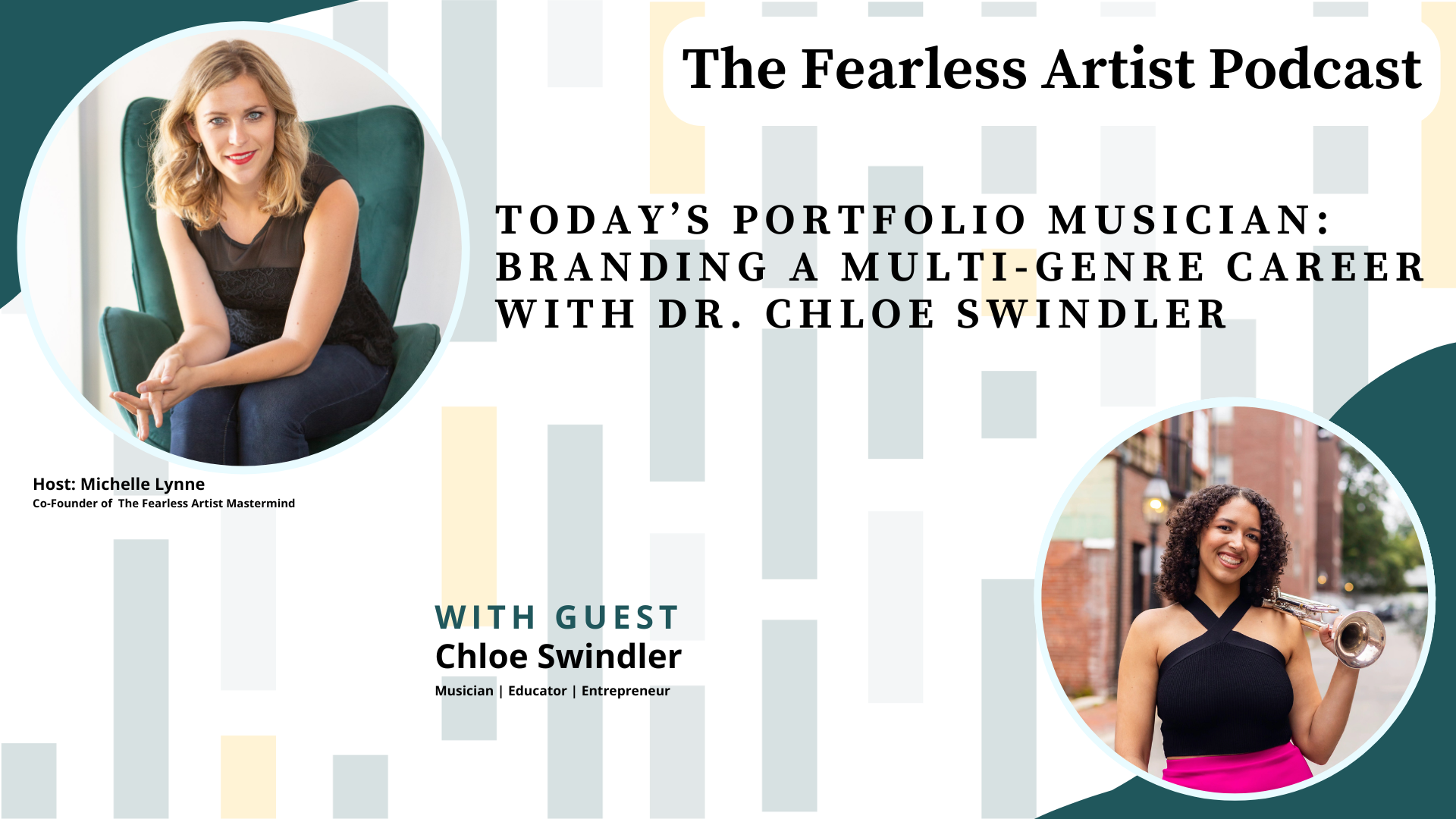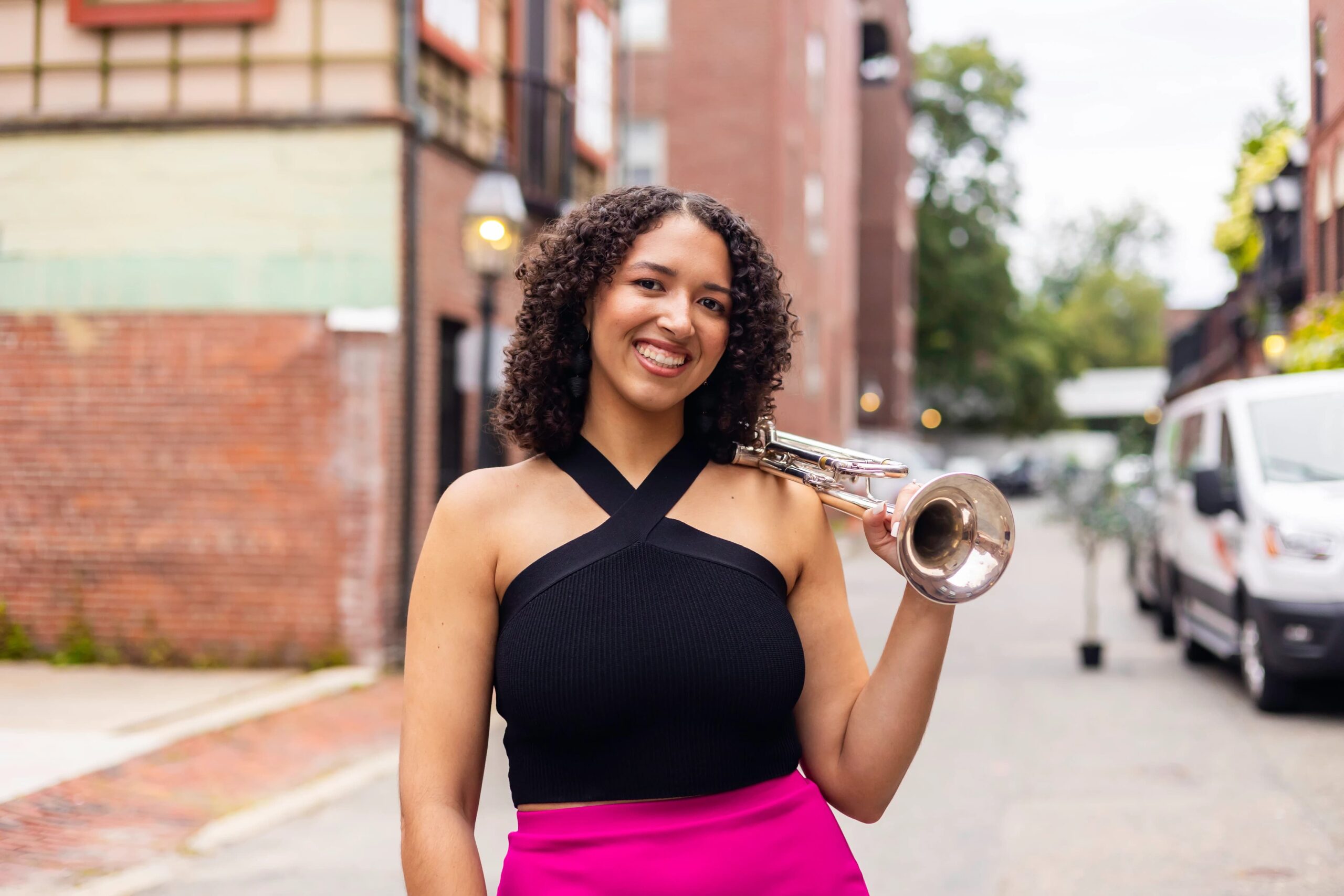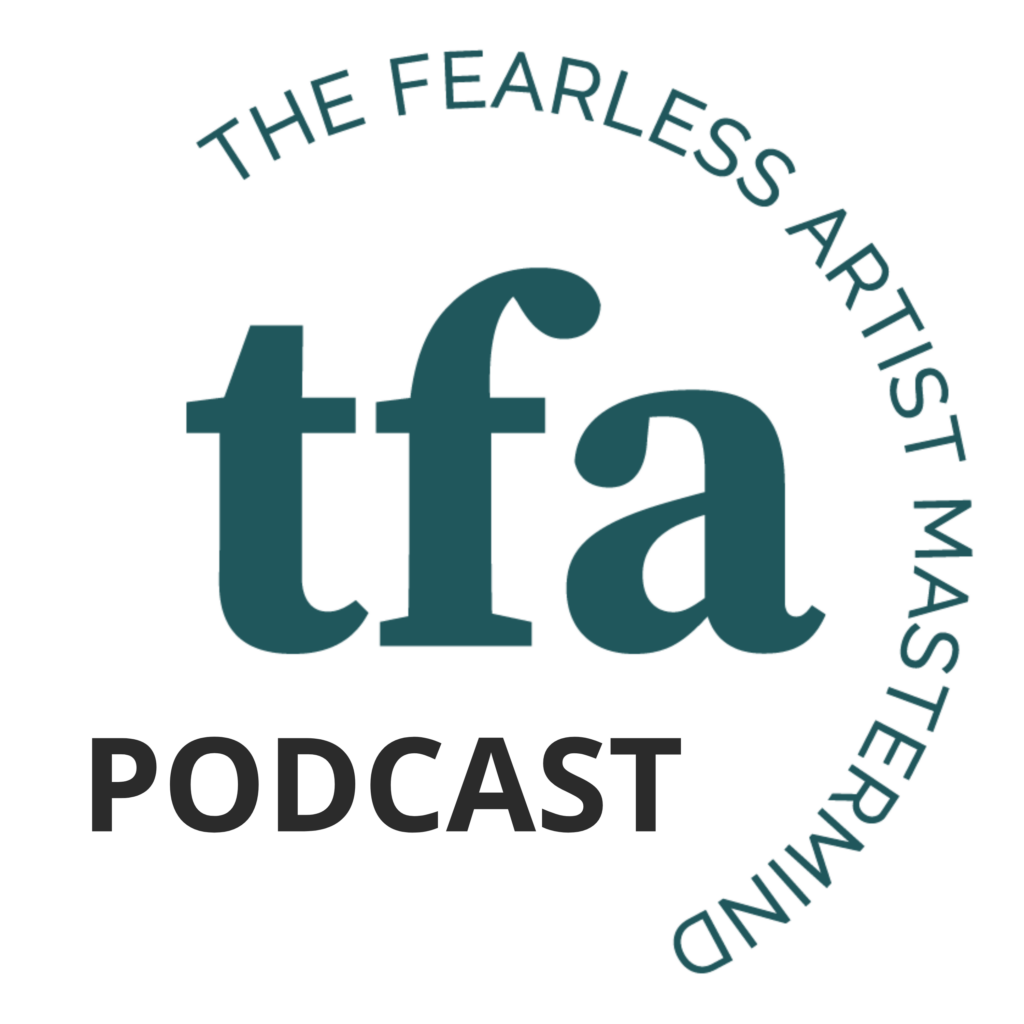Today’s portfolio musician: branding a multi-genre career with Dr. Chloe Swindler

Guest:
Chloe Swindler
Musician | Educator | Entrepreneur
Hailed by the International Trumpet Guild for her “sweet, singing sound” and “shimmering vibrato,” Dr. Chloe Swindler (b. 1995) thrives on finding the sweet spots of blurred genre lines. Her career includes engagements as a soloist, chamber musician, orchestral musician, jazz musician, and studio musician. Chloe recently performed with pop singer Harry Styles at the Coachella Valley Music and Arts Festival, Lizzo at the BET Awards, and Vanessa Williams with the Colour of Music Festival. She is the second prize winner of the 2019 International Trumpet Guild Solo Performance Competition and a finalist of the 2019 Yale School of Music Woolsey Concerto Competition.
As an orchestral musician, Chloe has performed under the batons of Peter Oundjian, Ken-David Masur, and Marin Alsop. As a recording artist and performer, she has played in Capitol Records (Los Angeles), Boston Symphony Hall, Dizzy’s Club (NYC), Scullers Jazz Club (Boston), and Lotte Concert Hall (Seoul, South Korea). She has served as the Trumpet Faculty for the Los Angeles Philharmonic’s YOLA National Festival, and as Music Lecturer at California State University, Los Angeles. In addition, she has led masterclasses and lectures at Shenandoah University, the Longy School of Music of Bard College, the University of North Carolina Greensboro, Colorado State University, Berklee College of Music, and the International Trumpet Guild Conference.
Chloe holds degrees from UCLA (Doctor of Musical Arts), Yale University (Master of Music) and Boston University (Bachelor of Music). Other institutions she has attended include the Royal College of Music, where she studied abroad in the fall of 2015. While pursuing her DMA degree at UCLA, she worked as Teaching Associate for the Brass Department and Trumpet Studio, and for the general education course “The Art of Listening.” Chloe also served as Co-Chair of the school’s Anti-Racism Anti-Discrimination Action Committee, and led the Culture of Academia Sub-Committee.
Chloe currently works at Berklee College of Music and Boston Conservatory at Berklee as the Assistant Director of Engagement and Programming for the Diversity and Inclusion Office.

Subscribe to The Fearless Artist Podcast
Intro/Outro music by Michelle Lynne • Episode produced by phMediaStudio, LLC
